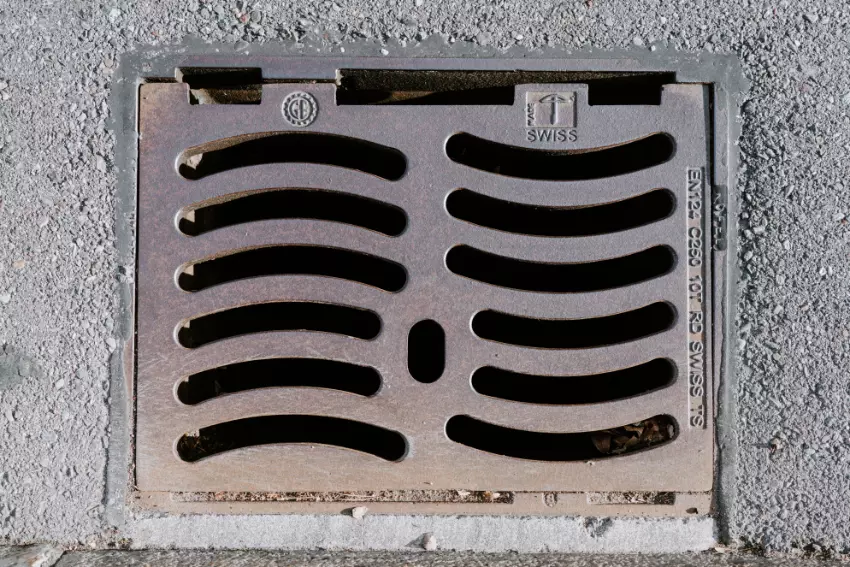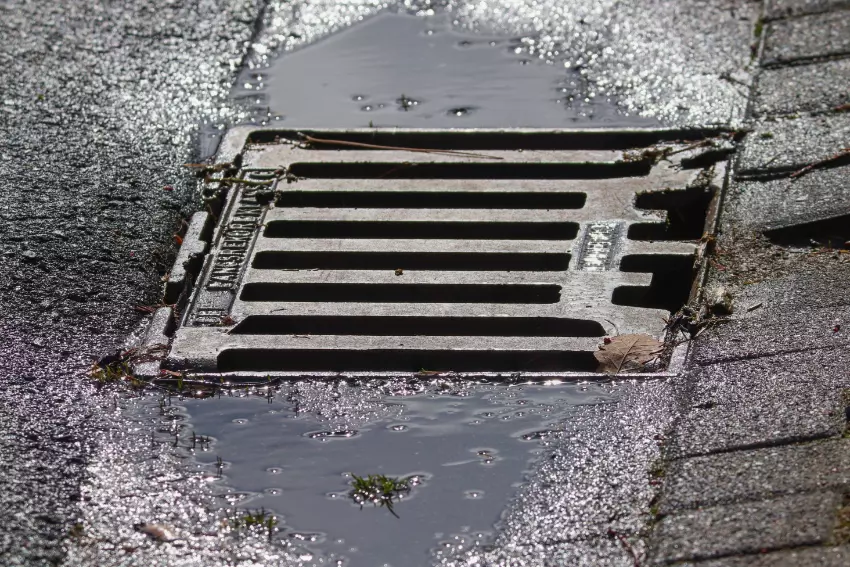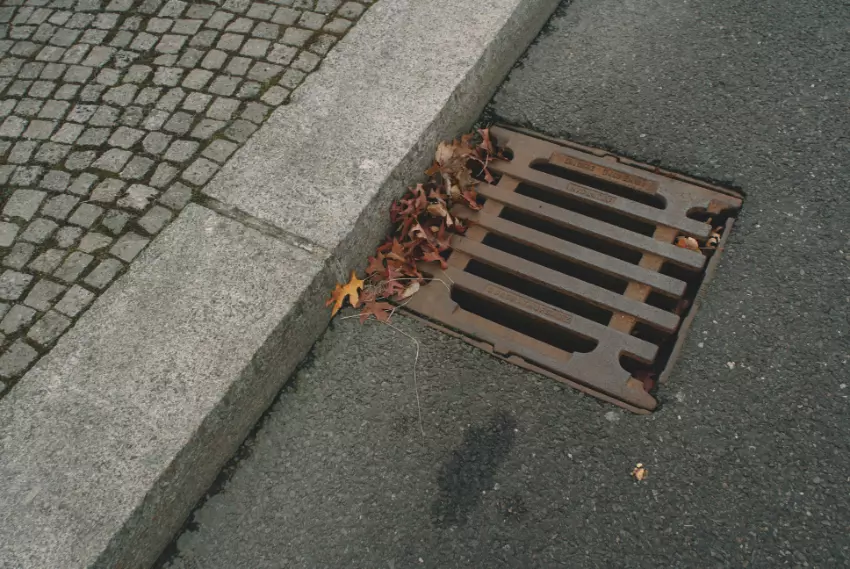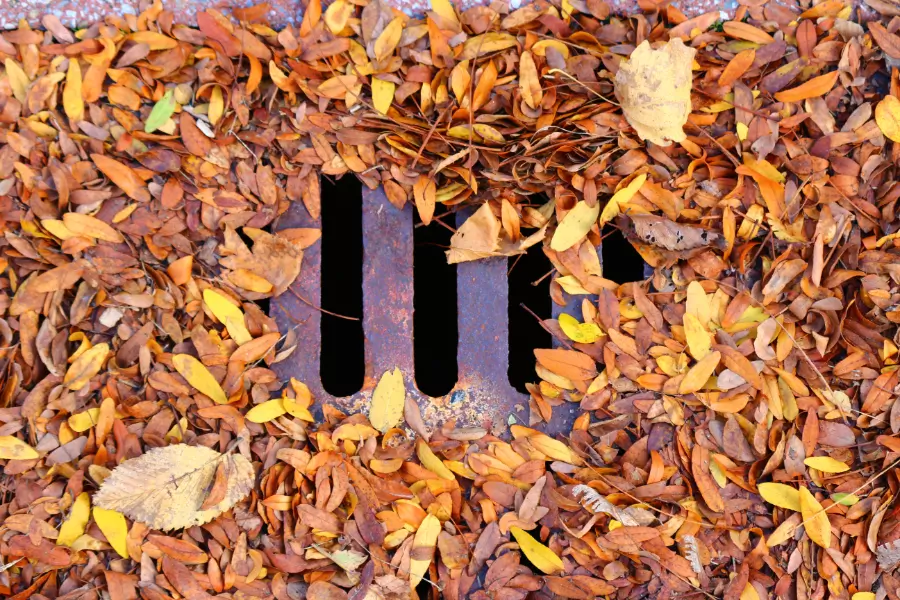Have you been asking: Why Is My Outside Drain Overflowing? Is Your Outside Drain Blocked? Find out what may be causing the drainage problem in your home or business.
What to do if your outside drain is blocked?
If you neglect crucial drain repairs, your local authority could be contacted, especially if your blockages, flooding or leaks begin to cause problems for other homes in your sewer network via lateral drains.
Contact your local water company if you feel your problems could further impact other homes in your neighbourhood or community.

Common issues with Blocked drains
It is significant to be familiar with the more common types of drain blockages that can occur inside and outside your home. There is a wide range of factors and signs that you can look for that help detect different blockages that lie within your household drain systems or between shared drains in many homes.
If you begin to notice these common issues, you must seek action as soon as possible:
Blocked external drains
External drains and be blocked with outdoor debris, leaves and litter from outside the home.
Coffee grounds and other items like sanitary items can also affect the external areas of your drains.
Blocked outside kitchen drains
Outside kitchen drains can be impacted even though they aren't a part of the regular public sewers.
It is then your responsibility to ensure you clear it away so that nothing could cause further issues.
Smelling drains
A rotten smell outside your home or property is a massive giveaway of blocked drainage systems.
Investigate your drains thoroughly, and you can find all manner of objects and items that could be causing issues for your drains.
Outside drains overflowing
A telltale sign of significant blockages in your system is an overflowing drain.
Contact a local experienced professional for further information if you identify this issue or others on the list.

What causes blocked outside drains?
Used cooking grease and fat is one of the most prevalent causes of all blocked drains, yet it is also the easiest to prevent.
Fatty foods and substances are most known for being incredibly sticky, so when they have been washed down the kitchen sinks, they will instantly attach to your private drainage pipes on the inside.
Gradually, your drains will be clogged to a point where no liquid can successfully pass through your drainage.
It's best to keep watch of the liquids and sauces that you wash down your drain, and it will allow you the chance to avoid any blockages.
Toilet paper and baby items are foreign objects are the most frequently known items that can block your drains. Nappies and wet wipes aren't explicitly designed to be flushed down the toilets.
Baby wipes and other wet wipes cannot efficiently disperse in water the way toilet paper does.
It is more likely that such fabrics and materials will snag onto different obstacles inside your pipes which over time cause blockages, as it garners more waste and worsens the problem.
Generally speaking, nappies work through the art of retaining water, and therefore they increase in size to successfully withhold that water. When submerged in water, they expand to their full potential, making them far too expansive to fit down any drain pipes.
Hair is fragile, and you may feel as though fine hairs are too delicate cause blockages or drainage issues.
However, a significant tangled build-up of hair down the plug can prevent water from efficiently flowing down it, a massive problem for all property and homeowners.
There is a comprehensive selection of products that customers can choose from on the UK market that catch hair before it has the opportunity to slip down the plughole.
Once your shift is away from the inside of your home, you can assess how overall garden maintenance affects your drainage pipes.
For those green thumbs that keep up with garden maintenance, you want to ensure that your garden is rid of all manner of other debris from surrounding trees and plants and any leaves.
If leaves and twigs get logged in your drain, they can cause a wide range of significant obstructions to your drain.
Over time, your drain pipes could crack from growing tree roots, as they are more likely to grow towards the closest sources of water.
Foreign objects, whilst they might not entirely block your drains, it may be a struggle when they begin to collect a range of materials over time. Water will struggle to flow freely as they clog up the drain.

Preventing Overflowing Drains
Kitchen
The best way to prevent any drains in your home or commercial property from becoming blocked is to ensure you're consistently monitoring the waste that you wash down your sinks and drain pipes regularly or each time you go to wash the dishes.
In the kitchen, it is vital to ensure that you scrape away all chunky foods off of plates before placing them in the sink to be washed, as this ensures large pieces of food do not get stuck down your drain pipes.
We highly recommend using good detergent or a high-quality soap to effectively break down the oil and grease built up whilst cooking. Instead of pouring the grease into the sink and down the drain, we suggest that you pour it into a container, wait for it to fully cool down and throw it into the bin.
You could also use paper towels to wipe away the grease and oil and put that in the bin before putting any dishes in the sink or dishwashers. A quick blast of cold water will ensure all grease has adequately solidified, and therefore it cannot cling to your pipes.
Bathroom
You must not drop any harmful foreign objects or items down the toilets or feed them through the sinks when in the bathroom. These more harmful items include hair and hair grips, nappies, face wipes, cotton wool, face or wet wipes, sanitary towels and soaps.
A long list of objects should never be flushed or washed down your bathroom appliance. You'll discover that the product packages often state whether or not you can flush them down the toilets; for example, flushable wipes are available in some toiletry isles.
Several items that you use every day in your bathroom could cause significant blocks due to the debris they gather, so it's best to place them inside your bin. Narrow pipes can be where items get severely jammed, so sharp items that aren't water or toilet paper can become an issue. Be sure not to use excessive toilet paper when going to the toilet, as too much could cause blocks.
Outdoor drainage
It is in your best interest to continuously remember to keep your garden's drains free of foliage, garden waste or leaves so that they do not wash down. They could end up creating blockages or further obstructions that could make it difficult for household wastewater to drain efficiently.
You want to make sure that you're always taking time out to sweep your garden frequently and utilise a high-quality compost heap to prevent any of your drains from overflowing with fallen leaves in the autumn or wintertime.

Suppose your drains have become a noticeable issue; you may have to notify a talented professional drainage engineer. They have the skills, essential tools and protective clothing to help pinpoint and accurately detect the issue at hand and alleviate any blockages they discover.
Experienced drainage experts are capable of various methods and techniques that will help identify some of your drain's most invisible problems.
They utilise specialist CCTV cameras, enabling them to look at hard to reach or awkward areas, analyse the faults, and check what has blocked your water from freely flowing. Professional plumbers can provide plenty of advice on what to recommend in the future, for example, how often to clean and sweep alongside the specific items that you want to avoid flushing down toilets or sinks.
Ensure that you call on a specialised workforce that can successfully handle all blocked drains and drains overflowing, causing flooding or leaking issues.
They provide a range of drainage services to accommodate any home or business property. For those suffering from any signs of direct issues or blockages, you'll want to contact a local professional company or service to send out a trained team of experienced engineers who can help resolve all of your problems.
It's paramount in this scenario that you call quickly; blocked drains can cause a wide range of issues and make it difficult to navigate daily activities, such as flushing the toilet, washing the dishes and many more.
Many engineers will often provide a free quote that is affordable for your budget. We highly recommend that you have your drains inspected every 6-12 months; otherwise, you can have it seen whenever you spot an issue that requires fixing.
Do you need a plumber in East London?
Contact us for plumbing services in Docklands, Waltham Forest, Tower Hamlets, Lewisham, Newham, Hackney, Southwark or Greenwich.





